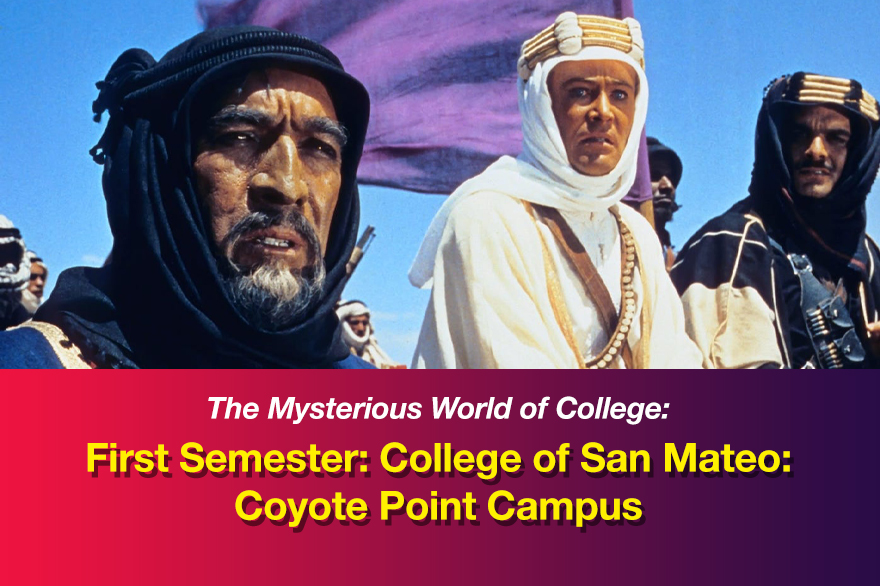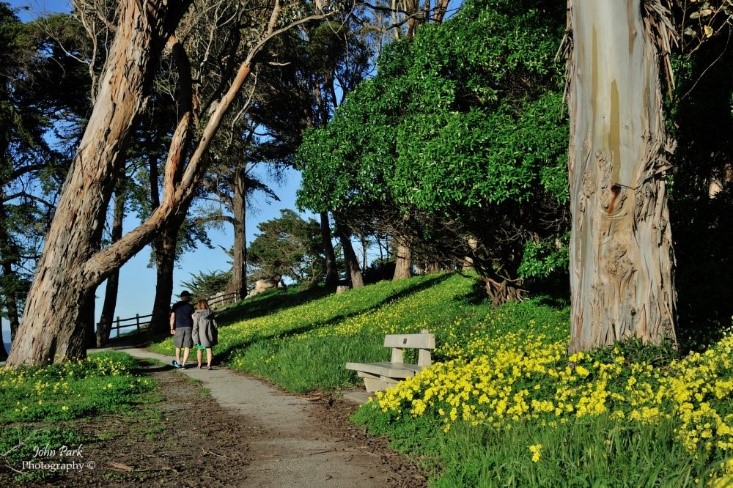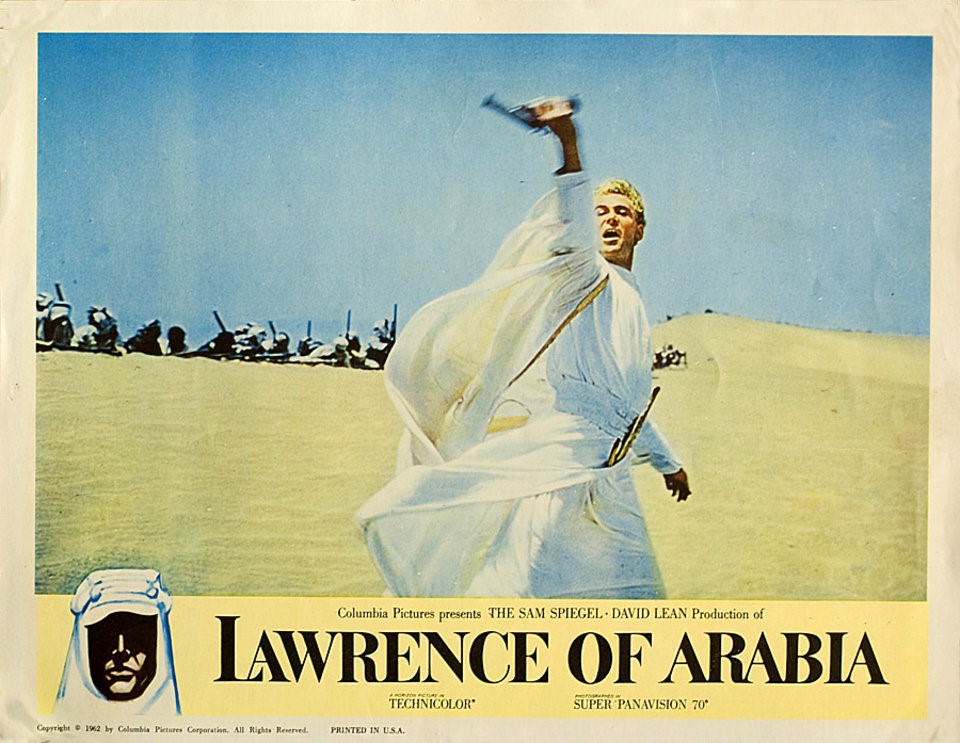The Mysterious World of College: First Semester
July 1, 2024

In the fall of 1962, I drove onto the Coyote Point campus of the College of San Mateo. The junior college was located on a lush peninsula jutting into the San Francisco Bay. A former Merchant Marine academy from World War Two, its barracks and classrooms were situated in a huge eucalyptus forest crisscrossed by paved paths.
In high school my area of study was vaguely and abstractly described as “college prep.” Now here I was at college and my area of study was narrowed down but just as abstract as “pre-med.” As a result, I took chemistry, first year German, and introduction to psychology. But even though I was now actually at “college,” I was no more focused than I had been in high school.
I feel into a group I had known from high school – from both Hillsdale and San Mateo high schools. I became good friends with some people who were previously only acquaintances like Pam Joslin and Bruce Grant from Hillsdale.

Most of the students seemed to be like me and junior college seemed more like an extension of high school. But in each class, there were 1 or 2 serious students. In my German class, it was Bruce Grant – a serious pre-med student who was at junior college to save money and get come basic classes out of the way. In my chemistry class, it was Steve Heaps. Steve worked full time at night at a commercial bakery to support himself and attended class during the day. He was always exhausted but was the brightest student in the class.
Pam and I were in psychology together but cut class most of the time to make out on bench with a spectacular view of San Francisco. Pam was a great kisser. We talked and kissed for an hour or two on the 3 days a week that psychology class met.
Other times I hung out at the cafeteria with Chris Jones from San Mateo high and John Gill from Hillsdale. Surfing was one of our common interests. Santa Cruz was a favorite surf spot on the weekends. Movies and books were other popular topics. Lawrence of Arabia was huge that fall. One of the books that most engaged me was Portrait of the Artist as a Young Man by James Joyce.

Lawrence and Portrait were two attempts to try to come to terms with something I admired and envied but could not get a handle on: single-minded focus. I can still see the scene so vividly where Lawrence walks and meditates all night tossing a rock in his hand. At dawn he grips the rock with white-knuckle intensity while his eyes blaze. I saw the movie at least 10 times, bought the movie soundtrack and listened to it non-stop, and bought a biography of T. E. Lawrence and inhaled it.
 James Joyce wrote Portrait when he was about 25 years old and still living in Dublin, Ireland. Joyce then moved to Paris, France. He did research in 7 languages on The Odyssey. It took him 7 years, but he wrote what many consider the greatest novel of the 20th century: Ulysses.
James Joyce wrote Portrait when he was about 25 years old and still living in Dublin, Ireland. Joyce then moved to Paris, France. He did research in 7 languages on The Odyssey. It took him 7 years, but he wrote what many consider the greatest novel of the 20th century: Ulysses.
I went to movies every weekend I was not surfing. And in 1962 there were some great ones like To Kill a Mockingbird, Manchurian Candidate and Birdman of Alcatraz.
I also read a lot. I found I could focus best on what I was reading from 9 or 10 pm until 2 or 3 am in the morning. The house was quiet and there were no interruptions. And with my classes in the afternoon, I could sleep in every morning.
Besides Joyce and Camus, I explored the classics like Crime and Punishment by Dostoyevsky, Heart of Darkness by Joseph Conrad, and The Sun Also Rises Hemingway’s first and maybe his best novel.
I was trying on many roles. I was trying to crack the code of “Who am I? And what am I supposed to do with my life?"
I struggled to get C’s. Am I supposed to be a doctor like my grandfather or my uncle Jim? If so, where was the motivation to study? Why was chemistry so boring? Why didn’t German inspire me? Why was I obsessed with Lawrence of Arabia but none of my classes. How did Mike Abbott become an honor student in high school and get into Stanford University? How is Bruce Grant getting all As in all his classes here at junior college? How is Steve Heaps, the star of the chemistry class when he’s holding down a full-time job?
 None of these guys was smarter than me. They seemed to be able to settle down and get their work done. I could read the books I chose with complete focus, but I could not apply myself to my classes. At this rate I did not have a snowball’s chance in hell of getting into any medical school. And I began to hear the clock ticking.
None of these guys was smarter than me. They seemed to be able to settle down and get their work done. I could read the books I chose with complete focus, but I could not apply myself to my classes. At this rate I did not have a snowball’s chance in hell of getting into any medical school. And I began to hear the clock ticking.
The best students in high school were already in real four-year colleges – some prestigious. Meanwhile, I was mediocre at junior college.
Unfortunately, there was no Coach Vermeil to do for Joe Dillon the student what he did for Joe Dillon the swimmer.
I seemed to be trapped between a vague, abstract and unmotivating world of academia and a vivid, graphic, compelling fantasy world of movies and books. September 1962, I turned 18. I was clearly not a man, but I was no longer a child either. And no answers seemed to be forthcoming.
Reminds me of a scene from another great movie around this time Zorba the Greek when Zorba asks Alan Bates, “Why do the young die?” And Alan Bates lowers and slowly shakes his head. And Zorba demands, “What’s the use of all your damn books?” And the Alan Bates character softly answers,“They talk about the agony of men who can’t answer questions like yours.”
Thank you for listening.
As always, I wish you and your family the very best of health.
Joe
 Cart (0)
Cart (0)

